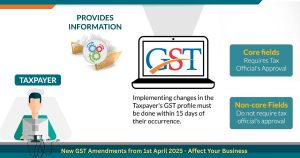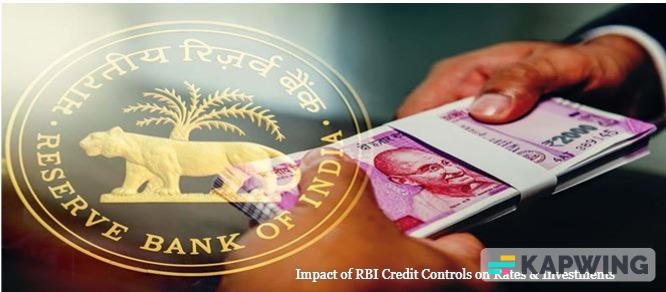When the next fiscal year begins on April 1, 2025, several major GST modifications will go into effect. Enhancing ease of doing business, strengthening digital security, increasing tax compliance, and standardizing processes for all taxpayer types are the objectives of these changes. These changes will affect a number of sectors, including return filing, input tax credit claims, e-invoicing levels, and non-compliance penalty structures. Whether you are a small business owner, accountant, or tax consultant, for example, it is critical to comprehend the changes and how they may impact you. By staying up to date with these advancements, businesses can reduce penalties, optimize tax planning, and ensure seamless compliance with the evolving GST system.

Let us simplify the most recent changes made to the GST.
- Mandatory Multi-Factor Authentication (MFA) for All
- ISD Registration Now Compulsory
- Updated Formats for GSTR-7 and GSTR-8
- Stricter Rules for e-Way Bills
- 30-Day Deadline for E-Invoice Reporting Now for More Businesses
1.Mandatory Multi-Factor Authentication (MFA) for All:
The government has mandated Multi-Factor Authentication (MFA) for accessing e-way bill and e-invoice websites in an effort to strengthen the security of GST systems. By forcing users to confirm their identity in two or more steps, such as a password and an OTP delivered to their phone or email, MFA, also known as an extra degree of protection is provided by two-factor authentication.
Who Is Affected and When:
- Effective January 1, 2025: Required for companies with annual revenue over ₹20 crores
- Effective February 1, 2025: Expanded to companies with annual revenue over ₹5 crores
- Effective April 1, 2025: Required for all GST taxpayers, regardless of turnover
This measure aids in preventing data misuse and illegal access on GST sites.
2. ISD (Input Service Distributor) Registration Now Compulsory :
In the past, companies having several GST registrations (branches in various states) had two options for allocating common input services, such as audit fees or rent:
Cross-charging The method of input service distributors (ISDs) Cross-charging was chosen by most businesses due to its simplicity, but it caused uncertainty in record-keeping and tax credit distribution.
What’s Changing?
All of these companies will have to register as an ISD and use the ISD method to distribute the Input Tax Credit (ITC) among their branches beginning of April 1, 2025. This implies: Companies must file GSTR-6 returns and send ISD invoices. The goal of this modification is to increase the transparency and ease of tracking of ITC sharing for tax authorities.
3.Updated Formats for GSTR-7 and GSTR-8 :
Two important GST return forms — GSTR-7 and GSTR-8 — have been modified to include more details:
- GSTR-7 (for Tax Deducted at Source or TDS):
- Now includes invoice-wise and document-wise tax deduction details
- Requires info like deductee’s GSTIN, invoice amount, tax deducted, etc.
- GSTR-8 (for Tax Collected at Source or TCS by e-commerce operators):
- Updated to show detailed supply information on goods/services sold through platforms like Amazon or Flipkart These changes will help improve accuracy in tax reporting and compliance.
4. Stricter Rules for e-Way Bills:
To improve tracking of goods in transit, the government has introduced two major changes related to e-Way Bills:
- Document Age Limit:
- From April 1, 2025, you can only generate an e-Way Bill for documents (like invoices) dated within the past 180 days
- For example, an invoice dated before October 3, 2024, will no longer be valid for e-Way Bill generation from April 1,2025
- Extension Time Limit:
- The maximum time you can extend an e-Way Bill is 360 days from the date of creation So, a bill made on April 1, 2025, can only be extended up to March 27, 2026 These limits are designed to prevent misuse of outdated documents and ensure timely movement of goods.
5. 30-Day Deadline for E-Invoice Reporting Now for More Businesses
In order to increase tax transparency, the government has been tightening regulations regarding e-invoice reporting. Previously, only companies with annual aggregate turnover (AATO) over ₹100 crores were required to report B2B invoices to the Invoice Registration Portal (IRP) within 30 days of the invoice date.
What’s New:
starting on April 1, 2025, companies with AATO over ₹10 crores will also be subject to this rule.
- Deadline: Report invoices within 30 days; if you miss it, you won’t be able to generate an Invoice Reference Number (IRN);
- Impact: This could cause delays in your input credit claims and other compliances.
Blog By:-
CA Preeti Tiwari
Assistant Professor
Biyani Girls College



